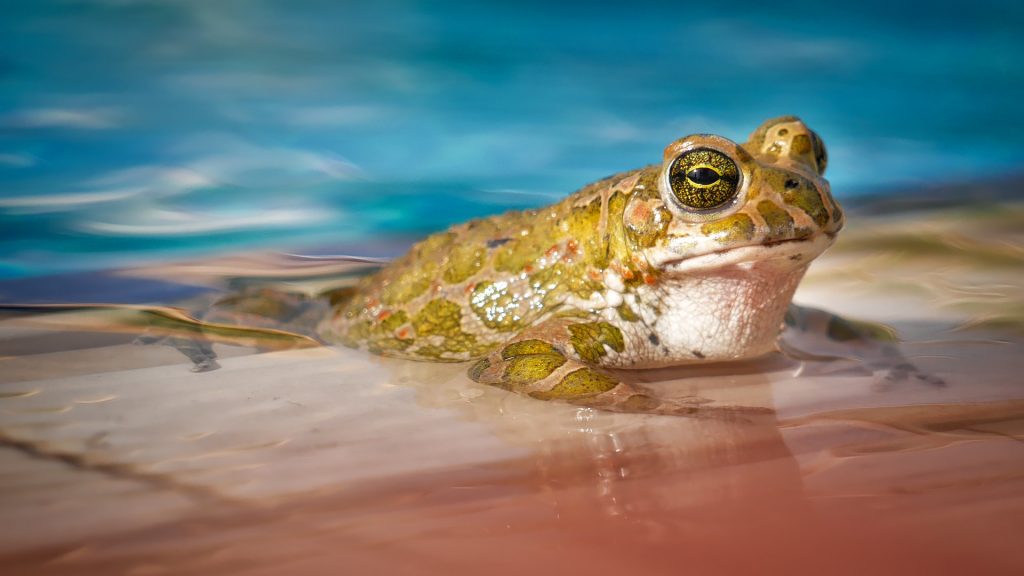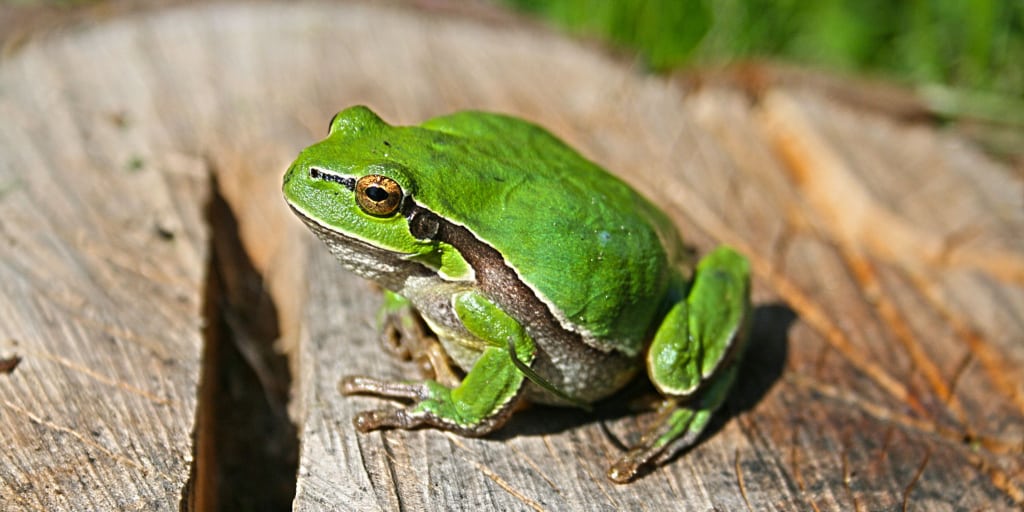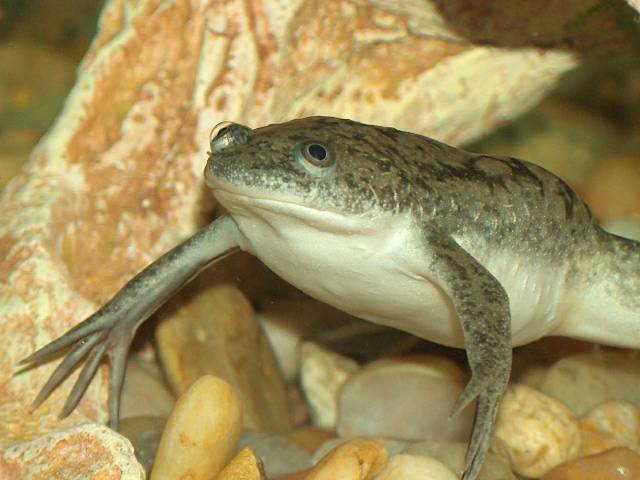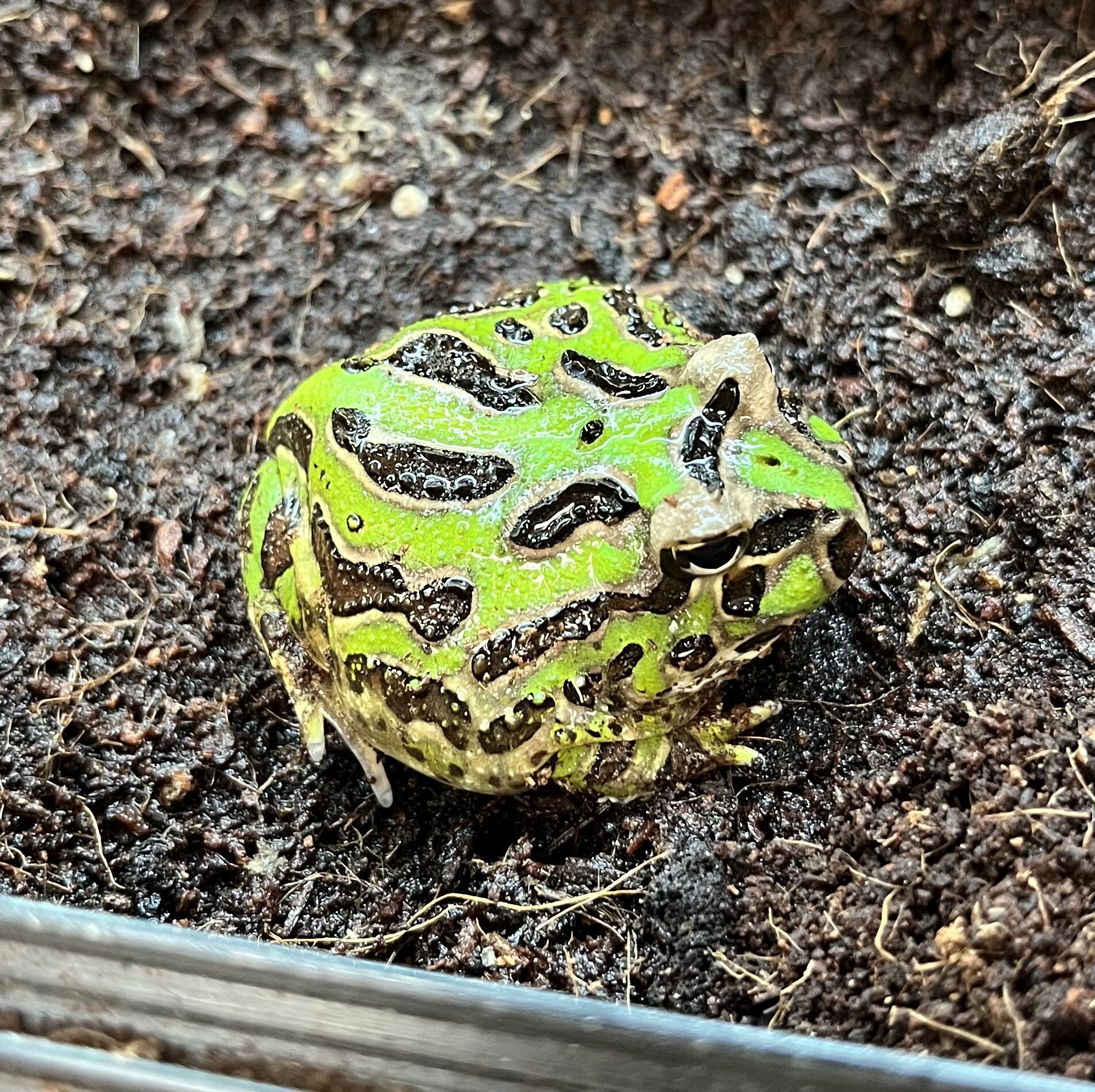Are you a proud owner of an aquarium filled with vibrant guppies, or perhaps an enthusiast of aquatic life? If so, you may have wondered whether frogs pose a threat to your beloved finned companions. Do frogs eat guppies? has intrigued many aquarists and animal enthusiasts alike. It’s a query that delves into the intricate dynamics of the underwater world, pitting predator against prey in a captivating display of nature’s balance.
What Are Guppies?
Guppies, known for their vibrant colors and elegant fin patterns, are small freshwater fish that have captured the fascination of aquarists worldwide. These small but resilient creatures belong to the family and are native to South America. Beyond their eye-catching appearance, guppies are known for their adaptive nature and ability to thrive in various aquatic environments. Their peaceful demeanor makes them ideal for community tanks, where they coexist harmoniously with other fish species.
One exciting aspect about guppies is their significant impact on ecological systems. In some regions, guppies have been introduced to control mosquito populations due to their voracious appetite for mosquito larvae. This introduction has unintended consequences in specific ecosystems, as guppies can outcompete native species and disrupt natural balance.
Why Don’t Some Frogs Eat Guppies?
What do frogs eat? What do frogs eat besides insects? Frogs are known for their insatiable appetite, devouring insects and even small fish with gusto. Some frogs shy away from feasting on guppies, and the reason behind this intriguing behavior lies in their evolutionary history. Research suggests that certain species of frogs have developed a keen aversion to consuming guppies due to the toxic compounds in the fish’s diet. Guppies often feed on aquatic plants and algae that contain poisonous substances, making them unpalatable or dangerous for many frog species.

Toxicity of guppies, another factor influencing why some frogs refrain from dining on them, is their preference for different prey options. Frogs have diverse dietary choices based on their environment and available food sources. Some may favor other aquatic organisms or smaller vertebrates over guppies, indicating that dietary specialization significantly shapes their feeding behaviors. This unique aspect of frog biology adds complexity to our understanding of predator-prey interactions within freshwater ecosystems and highlights the intricate balance of nature’s food web.
Frogs That Eat Guppies
What can frogs eat? Frogs as guppy predators may come as a surprise to many, but it is a natural part of their diet in the wild. These nimble amphibians are opportunistic feeders and will readily consume guppies if given the chance. The interaction between frogs and guppies provides an intriguing insight into the delicate balance of ecosystems, as the preying behavior of frogs helps control guppy populations in natural habitats. This dynamic illustrates how various species coexist and influence each other within diverse ecosystems.

The predation of guppies by frogs also showcases the adaptability and versatility of these tiny amphibians. Their ability to hunt efficiently in different aquatic environments reflects their evolutionary prowess, demonstrating how they have evolved to thrive in diverse ecological niches.
African Dwarf Frog
African dwarf frogs are intriguing amphibians known for their unique feeding habits. They primarily consume a diet of aquatic invertebrates; some African dwarf frogs have been observed eating small fish such as guppies. This behavior may surprise many frog enthusiasts, as it challenges the conventional notion of frogs being strictly carnivorous.
The ability of African dwarf frogs to prey on guppies is fascinating and raises questions about their ecological role in aquarium ecosystems. In captive settings, providing a balanced diet mimicking their natural environment becomes crucial to ensure the well-being of the frogs and the potential prey species. These feeding dynamics offer valuable insights into the delicate balance of life within aquatic habitats and underscore the complexity of predator-prey relationships in confined spaces.

African Clawed Frog
The African clawed frog is a fascinating amphibian known for its unique feeding habits, including preying on small live fish such as guppies. This behavior stems from the frog’s predatory nature and ability to catch swift-moving prey using its webbed feet and sharp claws. The sight of the African-clawed frog stealthily stalking and capturing guppies in an aquarium can be both mesmerizing and slightly alarming, showcasing the predatory prowess of these seemingly innocuous creatures.

It’s important to note that while it is natural for African clawed frogs to eat guppies, proper care should be taken when housing them together. Keeping them well-fed with a varied diet can help minimize their inclination to hunt other tank inhabitants.
American Bullfrog
The American Bullfrog, known for its voracious appetite, has been increasingly recognized as a natural predator of guppies. This amphibian’s diet primarily consists of insects, small mammals, and other aquatic creatures—and guppies appear to be an irresistible delicacy for these skilled hunters. While bullfrogs may not be the first species that comes to mind when thinking about guppy predators, their efficient hunting techniques and the adaptability of their digestive systems make them formidable opponents in the underwater ecosystem.

What sets the American Bullfrog apart from other guppy predators is its ability to hunt in water and on land. This unique skill allows them to catch guppies at various life cycle stages, making it challenging for these colorful fish to evade their would-be attackers. The relationship between bullfrogs and guppies sheds light on the intricate dynamics of predator-prey interactions within aquatic habitats—a dynamic that fascinates researchers and enthusiasts alike.
Pacman Frog
The Pacman frog, also known as the South American horned frog, is a captivating amphibian species with an insatiable appetite for small prey, including guppies. These unique frogs have earned their nickname due to their wide mouths and voracious feeding habits, resembling the popular video game character. Guppies may seem unlikely for such a sizable amphibian, but Pacman frogs are ambush predators that thrive on a diet of small fish and insects in the wild.

The phenomenon of Pacman frogs eating guppies is intriguing because of their remarkable adaptability. With their distinctive hunting style and powerful jaws, these amphibians can easily catch and consume guppies within seconds. This behavior showcases the fascinating diversity of predatory techniques within the animal kingdom, shedding light on how different species have evolved to meet their dietary needs in various environments.
Things To Consider Before Feeding Guppies To Your Frog
What do wild frogs eat? Before you decide to feed guppies to your frog, there are a few essential things to consider. It’s crucial to ensure that the guppies are of an appropriate size for your frog to consume comfortably. Oversized guppies may pose a choking hazard, while undersized ones may not provide sufficient nutrition. It’s essential to evaluate the health and condition of the guppies before offering them as food. Sick or diseased guppies might transfer harmful pathogens or toxins to the frog, potentially causing illness or death.
Consider the nutritional value of guppies as a food source for your frog. Guppies can be a great source of protein and essential nutrients for frogs when fed in moderation. Relying solely on guppies as a staple diet may lead to nutritional deficiencies in the long run. If you’re considering breeding your guppies for frog-feeding purposes, research proper breeding practices and ensure that any breeding colonies are well-maintained and free from genetic abnormalities or diseases that could be passed on to your frogs through their food supply.
How Do I Feed Guppies To My Frog?
If you’re considering feeding guppies to your frog, it’s essential to ensure the safety and welfare of both animals. Guppies can be a nutritious and natural food source for frogs, providing essential protein and nutrients for their diet. It’s crucial to consider the size of the guppy in the frog’s mouth, as larger guppies may cause choking or digestive issues for the frog. They ensure the guppy is healthy and disease-free, which is essential to prevent potential harm to your frog.

When feeding guppies to your frog, consider using live or frozen guppies rather than dried or processed options. Live prey can stimulate natural hunting instincts in frogs, providing mental and physical enrichment.
Final Thoughts
Frogs are known to consume a variety of small prey; whether or not they eat guppies is not straightforward. Some Frogs Eat Guppies, particularly in the wild, where they may opportunistically hunt for any available food source. In a controlled environment such as a home aquarium, it is essential to consider the specific behaviors and dietary requirements of the frogs and guppies before introducing them. Careful consideration and research should be undertaken before making any decisions regarding the cohabitation of these two species. It is crucial to prioritize the well-being of all animals involved and seek professional advice if necessary.
FAQS
Will A Frog Eat My Fish?
What Predators Eat Guppies?
Will Guppies Eat Guppies?
Do Frogs Eat Fry?
In the wild, frogs often hunt near bodies of water where fish fry may be abundant. They will wait for an opportunity to strike and catch the unsuspecting fry with quick tongue movements.